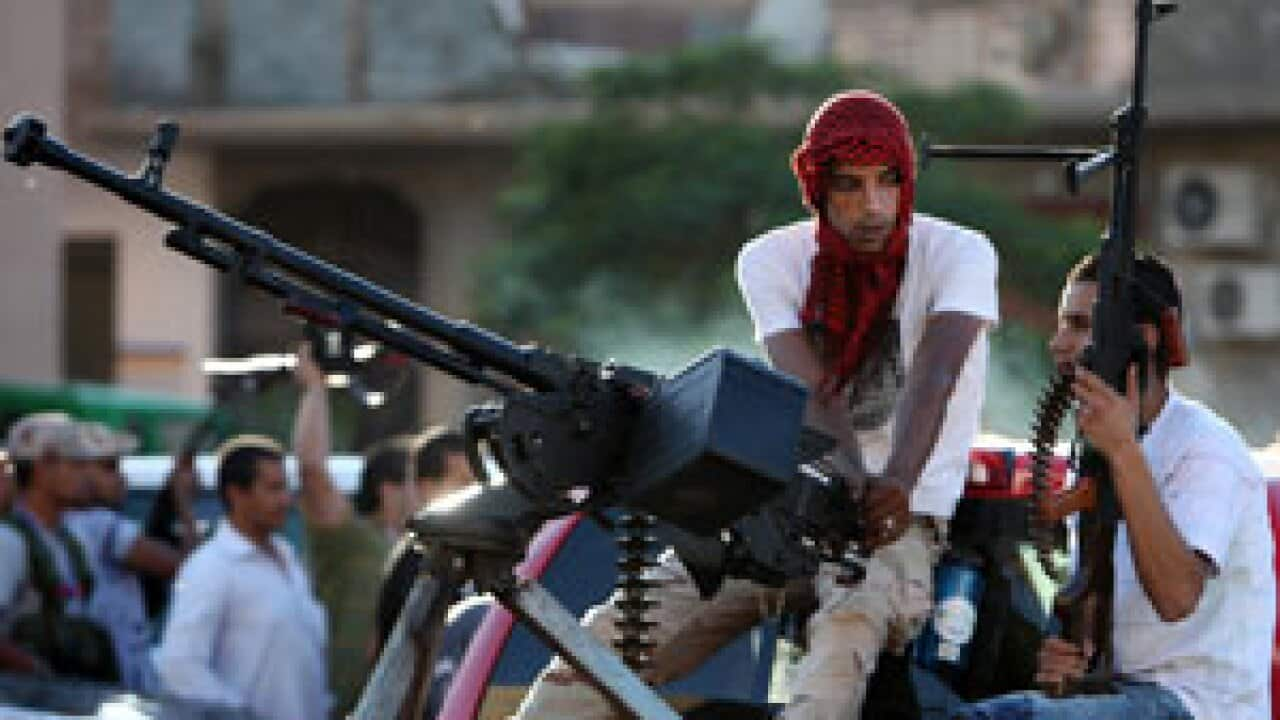Libya's oil industry drives its economy.
With around 46-and-a-half billion barrels, it holds Africa's largest proven oil reserves and is the world's ninth biggest. Most of those reserves are located in the Sirte Basin, near Gaddafi's hometown.
It also has healthy natural gas reserves at near 55 trillion cubic feet.
Before the uprising, the nation exported around $35 billion of energy resources, equalling a total of 1.8 million barrels of oil per day. Italy, Germany and Spain are the major importers, with the industry contributing to 95 per cent of export earnings.
The civil war saw production halted though, and today it's barely at one-quarter of total potential output.
But to regain productivity, the nation will have to assess any damage to oil facilities by the conflict and the impact of looting of power generators, pumps and trucks.
Then it will have to find workers.
Thousands of migrants, working at the oil fields fled the nation during the conflict, many from Egypt.
They'll have to be enticed back but security issues will need to be addressed.
But Libya needs immediate assistance. One in three Libyans are out of work and its poverty rate sits above 30 per cent.
There's suggestions that the nation's $64 billion in global investments, once unfrozen, could bring wealth back into the country.
Trade ties will need to be fostered. The EU lifted sanctions on Libya's ports and oil firms in early September, and only a few days ago, the Reserve Bank of Australia eased sanctions on the nation.
The Australian government is still advising Australians not to travel to Libya with the possibility of retaliatory measures from pro-Gaddafi forces.
Libya's tourism industry will have to wait until security strengthens. Italian, British and German visitors had been drawn to the nation's Greek and Roman ruins - and Saharan landscapes.
In the meantime, the National Transitional Council will be under scrutiny, for its ability to develop the country and build a diversified industry outside of oil.
Education will be a key focus.
The International Monetary Fund will now send a mission to the nation to review its economic and financial situation. Last month the IMF announced recognition for the NTC, paving the way for future financial assistance.
It's unclear how long it will take for Libya to get back on its feet, but if one looks at the rebuilding process for some neighbouring countries which also experienced an 'Arab Spring', it seems it may take a while.
Tunisia will hold elections over the weekend, with its privatisation plans on hold.
While in Egypt, its stock market is down 40 per cent this year amid renewed protests ahead of elections this year.
And it seems global credit agencies will wait until Libyans head to the polls, to review their ratings on the nation.

